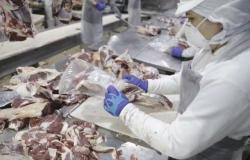The Federal University of Acre (Ufac) was the host of the XI International Journey of the Theater of the Oppressed and University (XI Jitou), an event covered by the CAPES PAEP/2023 notice. The focus of the event was the debate on forest pedagogies, which has been taken over by the Forest Study Group on Theater of the Oppressed (GESTO), created in 2017, with the aim of arriving at an epistemology of forest peoples.
The Ufac professor, coordinator of the Federal University of Bahia (UFBA). The Forest Gesture, explains Flávio Conceição, “is an arm, an aspect of the GESTO, which thinks based on the knowledge of the forest people”. And he adds: “our specialty as Theater of the Oppressed (TO) is to make us understand how it tends to be affected by the knowledge of traditional, riverside, indigenous communities, forest people and plants that, for millennia, they have recognized as teachers”.
The deputy coordinator of GESTO at CNPq is the professor at the Federal University of the South and Southwest of Pará (Unifesspa), César Paro. He coordinated the first Jitou Norte, in Marabá, 2022. “The idea of Jitou Norte is to make the North ‘Suppress’ the practices of the Theater of the Oppressed through contact with nature and the knowledge of original peoples”, he states.
The professor of the Postgraduate Program in Education at the State University of Pará (UEPA), Maria Betânia Albuquerque, from the History of Education in the Amazon Group, who coordinates a line of studies on educational processes that take place in environments outside of school: yards, backyards, forests, rivers, churches, theater, cinemas, etc. she explains that this epistemology understands as a place of learning environments that, put into perspective in the Amazon, are capable of making us understand how Amazonian cosmologies understand the way humans are; animals and spirits see themselves and other beings in the world.
Maria Bethânia Albuquerque gave a lecture on the topic: “Learning from plants in the anthropocene: in search of a forest pedagogy”, highlighting that human beings learn from nature and all living beings.
Researchers from Chile, Guatemala, Mexico, Bolivia and England, focusing on research on how the Theater of the Oppressed can develop traditional experiences focused on the perception of Amazonian realities, their aesthetics and language, were present. “This was a starting point and a kind of stamp that Gesto da Floresta leaves on the experiences of the International Days of Theater of the Oppressed and University, on its trajectory through the North”, says Flavio da Conceição.
From Jitou, the Northern Front of Resistance emerged, which brings together professors from universities in the North of Brazil. The perspective now is that the next Jitou could take place in Amazonas, in 2026.
What is it?


The International Days of the Theater of the Oppressed and University (Jitou) is an academic event to reflect on the theory and practice of the theater of the oppressed, carried out by researchers, teachers, multipliers, jokers from the theater of the oppressed, people from the social movement. This event was created because there was no other event that talks about and discusses the Theater of the Oppressed, its techniques and methodology, in Brazil.
On the scene
The jokers are trained in the methodology of the theater of the oppressed, at the Center for Training in Theater of the Oppressed (CTO), which emerged in 1986, founded by the playwright, Augusto Boal, as a center for research and dissemination of the theater of the oppressed, in laboratories and seminars, both permanent, for review, experimentation, analysis and systematization of exercises, games and theatrical techniques.
The Jitou bring to the scene the results of these experiences, today applied in teaching, research and extension programs at several universities, in Brazil and around the world. They are a space open to demonstrations, performances, shows, and shows that translate into classes on topics such as “The narco-aesthetics of mourning”, presented by Chileans, Roberto Pino and Stephânia Vinet, in an Introduction to TO Curiosity and Autonomy workshop: theater of oppressed people and its application in educational contexts.
In addition to the workshops, there were shows: “Ancestral Echoes”, by Allegriah Grupo de Arte e Cultura/in partnership with Arte e Comunidade (ESAT/UEA); “cosmic snake”, a performance directed by Luiz Cláudio Cândido, which is part of the creative process developed by doctoral research, with the theme: “Boiúna: a poetic dive into the dreamlike dramaturgy of the waters”, by Tânia Vilarroel Andrade, guided by Dr. Alice Yagyu, at the School of Communication and Art (ECA-USP), the performance “Casa de Sananga: stories and teas, which envisions a practice of “storytelling as therapy” in the approach of teaching plants, the UEA Performing Arts graduate, Felipe Fernandes, and a prayer music show Huni Kuin.
Furthermore, during a visit to the traditional community, Colônia Cinco Mil, the books “Eye of the forest: management of cipó-titica and native seeds in FloNA do Purus” were launched, organized by Graça Mitoso; “Poetic agglomeration: voices of introspection” and “Between stages and pages: verses of scene and paint”, by Jackeline Monteiro; and “Poems in the head”, by Deihvisom. The School of Art and Forestry Knowledge Jardim da Natureza da Floresta Nacional (FloNA) of Purus, a partner of the Teaching, Research and Extension, Art and Community Program (ESAT/UEA), participated in the meeting, taking students and teachers.
Tags: Jitou takes place Acre brings light theme forest pedagogies
--








